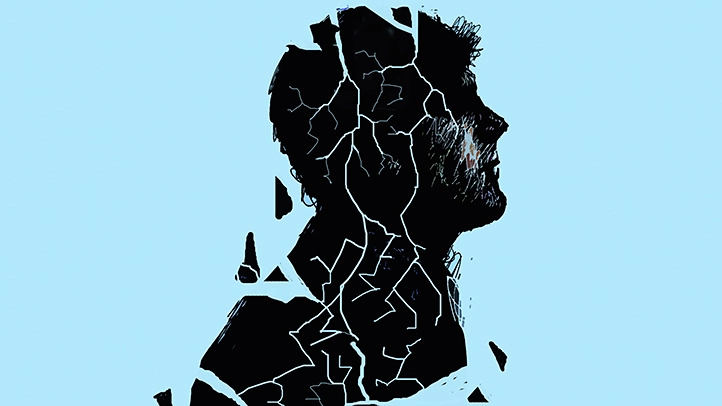We often hear people use expressions like “I feel depressed” “this is giving me depression”, “that is so depressing” and take it lightly. However, depression is a serious disorder and is more common than we think. In fact, according to WHO (World Health Organization), an estimated 3.8% of the world’s population suffers from depression. This includes Muslims too who are not immune to such prevalent mental disorder.
As we have already discussed mental and spiritual health in Islam. In this article, we will explore an Islamic oriented view about depression and how to cope with it.
What is depression?
Depression is distinct from common mood swings and temporary emotional distress when facing daily life struggles. Depression, commonly referred to as major depressive disorder or clinical depression is a mood disorder with a range of symptoms that may include but are not limited to persistent melancholy or loss of interest in activities that once piqued one’s interest.
The affected person may experience severe suffering and perform poorly at simple everyday life tasks and relationships wise. In the worst cases, depression might result in suicide. Every year, suicide claims more than 700,000 lives.
Depression symptoms
The trick is to recognize the symptoms. Sadly, only approximately half of those who experience depression receive a diagnosis or treatment. Here we gathered for you the most common symptoms to be wary of:
- Persistent sadness, anxiety, emptiness.
- Negative feelings such as guilt, restlessness, hopelessness, despair, discomfort, worthlessness and pessimism.
- Difficulty concentrating, remembering, and making decisions.
- Loss of enthusiasm and interest in previously enjoyable activities sex included.
- Having trouble sleeping, waking up early, or sleeping excessively.
- Persistent aches, pains, headaches, or cramps.
- Digestive issues that don’t improve despite treatment.
- Loss of appetite or excessive eating.
- Loss of pleasure in general and feeling lost.
- Thoughts of suicide or a suicide attempts.
Bear in mind however that not all depressed people share the same symptoms. They can vary in severity, frequency, and duration. Some people may more easily convey mood swings through physical symptoms (e.g. pain, fatigue, weakness); but no other medical issue is to blame for these physical symptoms. Additionally, your symptoms might exhibit patterns. For instance, a change in the seasons might cause depression (a condition formerly called seasonal affective disorder).
Depression causes
 Anyone can experience depression, even if they seem to have pretty excellent living conditions. The following are factors that may contribute to the manifestation of depression:
Anyone can experience depression, even if they seem to have pretty excellent living conditions. The following are factors that may contribute to the manifestation of depression:
- Biochemistry: Variations in a few brain chemicals could play a role in the development of depressive symptoms.
- Depression may run in families due to genetics.
- Personality: It seems that those who have low self-esteem, are easily stressed out, or are usually gloomy are more prone to suffer from depression.
- The environment: Some people may be more susceptible to depression if they are constantly exposed to violence, neglect, abuse, or poverty.
What does Islam say about depression?
Any Hardship, including mental disorders such as depression, is viewed in Islam as a “test,” a challenge that requires believers to look for a resolution. Allah (SWT) says:
“Allah does not charge a soul except [with that within] its capacity” Surah Al- Baqarah (2:286)
Unfortunately, stigmas surrounding mental disorders exist. Depression is mostly taken lightly or even ignored by oblivious people all around the world including Muslim communities. Some Muslims mistakenly believe that mental struggles as depression are solely the result of a weak or incomplete faith. This is a flawed perception that should be corrected. Islam never treated humans like robots that cannot experience the dark and lonely side of life. In fact, Islam not only acknowledges such negative and unpleasant feelings but also comforts us. Allah (SWT) says:
“For indeed, with hardship [will be] ease. Indeed, with hardship [will be] ease” Surah Ash-Sharh (94:5-6).
“Indeed, those who have said, “Our Lord is Allah ” and then remained on a right course – the angels will descend upon them, [saying], “Do not fear and do not grieve but receive good tidings of Paradise, which you were promised” Surah Fussilat (41:30).
Are Muslims allowed to seek help when depressed?

Naturally, all humans have ups and downs including Muslims. However, some Muslims would feel ashamed to admit to having such struggles. As a result, they would neglect their mental health and sink deeper into this sea of loneliness and despair called depression.
Islam urges us to be the best version of ourselves on all levels be it physical, mental and even spiritual. Hence, seeking professional help or comfort from others is actually encouraged. Allah (SWT) says:
“Do not throw [yourselves] with your [own] hands into destruction” Surah Al- Baqarah (2:195)
How to deal with depression as a Muslim?

Islam always provides us with methods to cope with various difficult situations. These can help in this case:
- Turning to Allah: feeling all alone and lost is common when depressed but turning to Allah and seeking his mercy is also a form of devotion. You can cry your heart out without being judged. You are free to share all your struggles, insecurities, and weaknesses with Allah (SWT) for he is always listening. God says:
“There is nothing like unto Him, and He is the Hearing, the Seeing” Surah Ash-Shuraa(42:11).
- Sabr: Being patient and trusting of Allah is the key element in fighting a strong opponent as mental disorders. It is both comforting and rewarding. Allah (SWT) says:
“And be patient, for indeed, Allah does not allow to be lost the reward of those who do good” Surah Hud (11:115).
- Reading Quran: Quran is a miracle which means it is full of wisdom and guidance. Allah (SWT) says:
“And We send down of the Qur’an that which is healing and mercy for the believers, but it does not increase the wrongdoers except in loss” Surah Al- Isra (17:82).
- Reciting Supplications: There are various supplications you can recite when feeling down. You can check these in the previous article: Duaa for depression and sadness.
It goes without saying nevertheless that cases that require medical treatment ought to be handled by professional healthcare workers from doctors to therapists, psychiatrists and others. It is always best to be diagnosed by a professional and treated accordingly.
It is only human to experience despair and dark thoughts. While Islam surely provides us with a life guide, we as Muslims can also fall victims to mental disorders like depression and others. In times of hardship it is best to trust Allah and do our best to work things out. It is never a sin to seek help. Instead, we should all work hand in hand to help each other overcome our life struggles.
